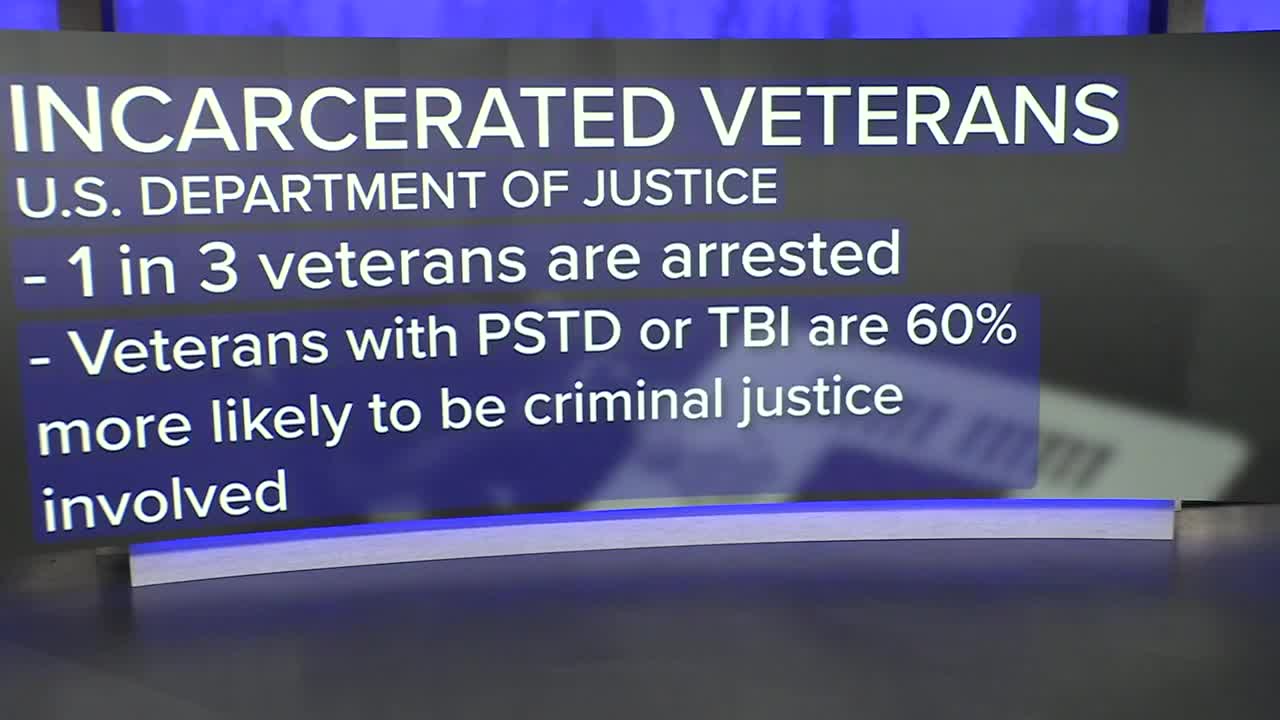DENVER — Six months after the Denver Sheriff's Department unveiled its specialized housing unit for military veterans at the Downtown Detention Center, Denver7 is getting a behind-the-scenes look at how the unit is following up on its promise to help incarcerated veterans prepare for reintegration into the community.
The Housing Unit for Military Veterans (HUMV) can house up to 64 men. Veterans facing serious crimes like sexual assault, homicide, and crimes against children are not eligible for the unit.
The goal is to provide a structured environment to encourage growth while giving veterans the chance to bond and share experiences with other former service members in custody. Since the unit opened in May, the Denver Sheriff's Department said 65 people have been connected with services through the VA and other resources. The department said 58 of those veterans were placed in the unit while the other seven people received access to resources but were ineligible for the housing unit.
"It starts with having a positive environment for them to learn and change their behavior, and here we can do that," said Major Jose Gurule, who oversees the Downtown Detention Center.
According to the U.S. Department of Justice, one in three of the nation's veterans are arrested at least once. Veterans with post-traumatic stress disorder or traumatic brain injuries are about 60% more likely to be involved in the criminal justice system.
"We do see high rates of substance abuse, high rates of mental health diagnoses, and we really wanted to provide them services that are geared towards them as veterans," said Major Gurule.
Derrick Brisbane, a Navy veteran who served as an aircraft firefighter on the USS George H.W. Bush, has been housed in the HUMV for around 90 days. He said he believes the unit provides an opportunity for personal growth.
"I think just reflecting on, you know, my process of getting in here and being able to plan on getting out of here... This has made me realize that I have a space and opportunity in helping other people rehab and helping vets that can relate and see themselves through me," Brisbane said.

Major Gurule said the housing unit gives veterans more freedom and privileges compared to general population units in other parts of the jail.
"There is a little more accountability and some freedoms for those in our custody who are in these housing units. They have the privilege of being able to go into the day room, to the rec yard anytime they want," he said. "They have the ability to have more family contact and phone services and kiosks and tablets."

However, Major Gurule said one of the biggest benefits is the community partners who regularly come into the facility to meet with veterans housed in the unit.
"We have resources for housing, for assistance with housing. We have resources for job training. We have a community partner that can actually help folks get into one of the trades," he said.
Brisbane said he is about to start a veterans treatment court program, which connects people to specialized treatment for substance abuse, PTSD, and other mental health issues.
"Any of the resources that the VA may offer, there's a liaison that helps get those things done from where we are," Brisbane said. "Everybody came here by themselves, but we can still find some kind of camaraderie and some similarities in things that we're experiencing here."





